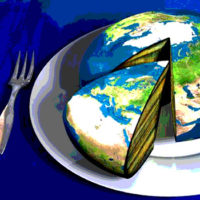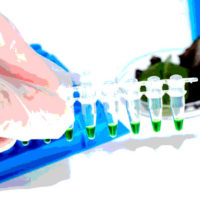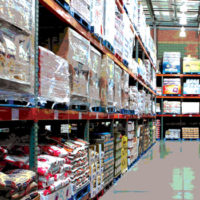Food Traceability: The Blockchain Revolution

An interview with Antoine Giros, Food Market Development Manager of Bureau Veritas, reveals how the company tackled food traceability at the consumer level.
What made Bureau Veritas want to tackle the issue of consumer demands for traceability? In other words, what market need did your company wish to fill? What existed prior to your solution?
Antoine Giros: There is an increasing demand for traceability both from consumers as well as from all the different companies acting throughout the value chain.
Consumers now focus more and more on the quality and safety of what they eat. Reassuring them is not enough; they demand more information and transparency on the origin of what they consume and on how it was processed. They don’t trust brands anymore, and they need proof of where products come from. The youngest generations are especially concerned with this phenomenon, as they are used to getting immediate access to information through their smartphone or social media.
On the other hand, all the various players of the value chain also need more information on the products they buy and process. All the recent food safety scandals over the world show how complex it is to ensure complete control of the value chain and real time follow up of the products.
As a result, product traceability is a major concern for all the stakeholders of the various value chains.
Please describe how your Origin solution tackles the issue of traceability from the consumer’s perspective.
AG: Origin is the first consumer-facing traceability label that provides consumers with proof of the product’s quality. It gives access to the complete history of a product: where it comes from, how it was made and processed, and how its quality was preserved.
Supply chains are today more and more complex with various acting stakeholders. Origin enables them to interact together with a common goal: develop a collaborative system to increase trust for the end-consumer, thus creating additional value on the products.
This solution is based on Blockchain technology. The whole idea is to digitally replicate the full lifecycle of the product and share it among the different players of the value chain. This is done through easy and automatic data integration of information already existing in the systems of each stakeholder.
What are the key differentiators of the Origin solution?
AG: The first point is that this solution reaches the end-consumer through the Origin label marked on products. A unique QR code is associated with each product and the consumer only has to flash it to get the full story of the product. Origin actually provides benefits to the various B2B players of the value chain as well as to the end-consumer.
The second main differentiator is that Origin is a combination of the best technology (provided by our partner Worldline) associated with Bureau Veritas's expertise in inspections and audits. Bureau Veritas will indeed also conduct audits and inspections along the whole value chain to check that the information sent to the blockchain is valid, which makes Origin much more reliable.
Finally, as an independent third party, Bureau Veritas is fully legitimate to define the rules of the game for each product. All supply chain stakeholders will agree to participate to this Blockchain because they trust Bureau Veritas in our role to organize this shared system.
Why is Blockchain the right technology to support your Origin solution?
AG: The problem we’ve been facing so far is that no one is legitimate to host all the traceability information coming from the various stakeholders of the value chain (for fair reasons, no one wants to delegate this responsibility to an external entity). Thanks to Blockchain technology, the different stakeholders of the value chain will agree to sit around the same table to discuss building a common traceability solution.
Blockchain being a decentralized and distributed ledger, there is no need to host the whole traceability information in an external controlling device. Everyone hosts the replication of the blockchain and the responsibility is completely shared. Any potential fraud would be directly identified by the other stakeholders. At the same time, the data is encrypted and immutable, guaranteeing complete security and confidentiality.
What long-reaching effects do you think Origin will have on food safety?
AG: Origin is all about giving power back to consumers. With such a solution, consumers have detailed information on the full value chain and can make informed purchasing decisions. I strongly believe that the system is virtuous and that it will encourage all the different players to improve their practices, resulting in safer products with higher quality.
Do you foresee any other applications using Origin at your company?
AG: I see two different use cases for Origin. The first one is the comprehensive traceability solution as explained before, with all actors using it, from upstream players to the end-consumer downstream. I believe that going to the end-consumer is where Origin will generate the highest value, as the end-consumer will see clear benefits in getting undeniable information on the products they consume. But of course, it’s also possible for a brand or a processor to use Origin as a platform to better control its own value chain upstream, without marking any label or QR code on their products.
Looking for a reprint of this article?
From high-res PDFs to custom plaques, order your copy today!





